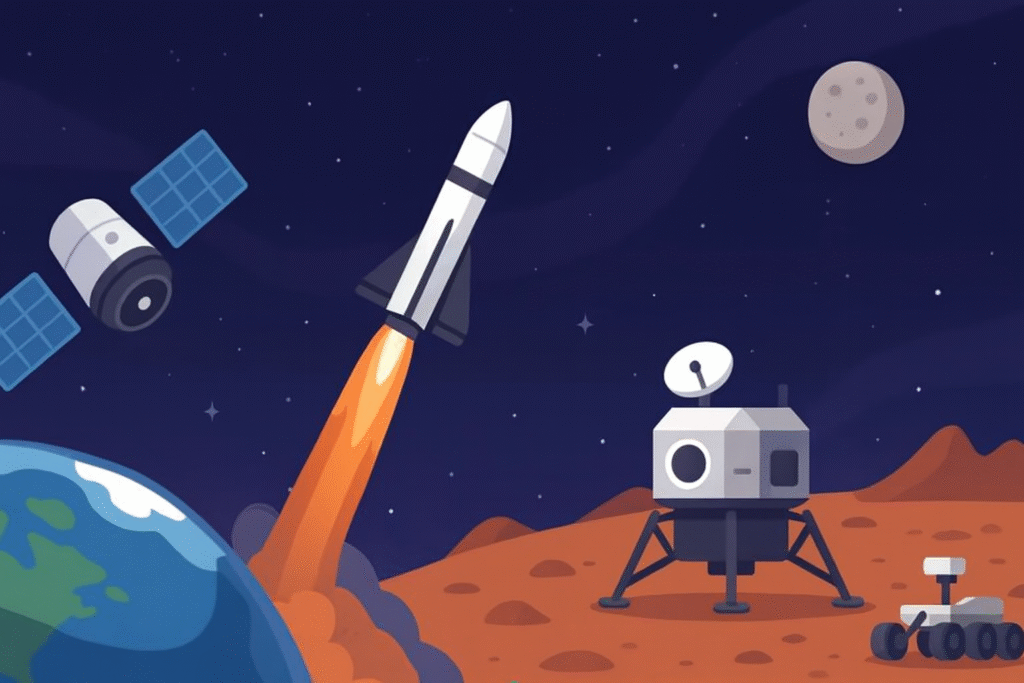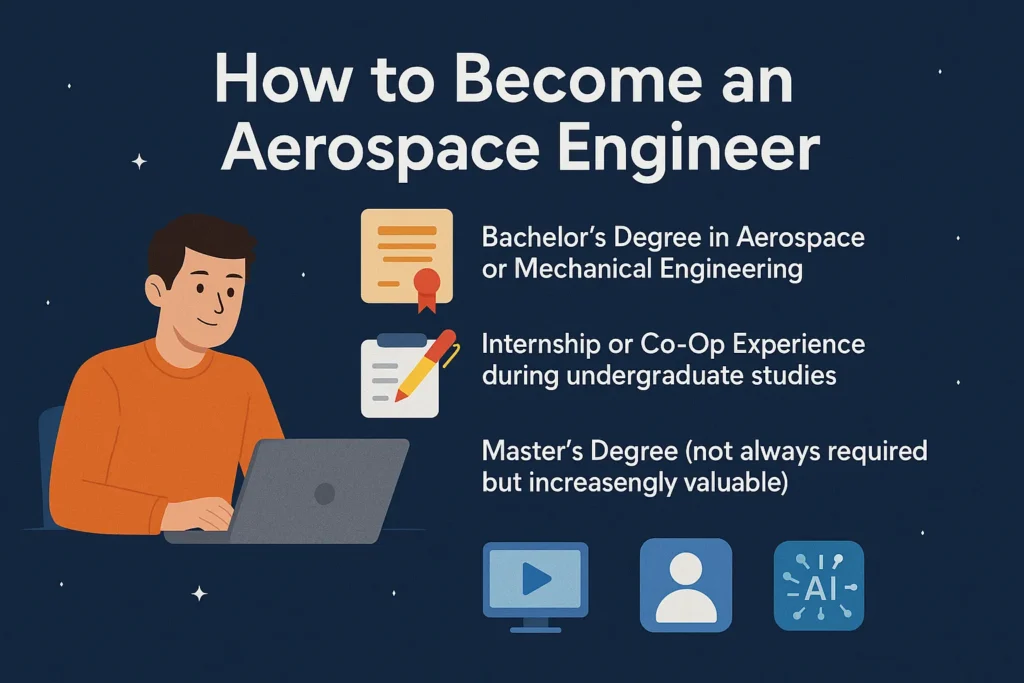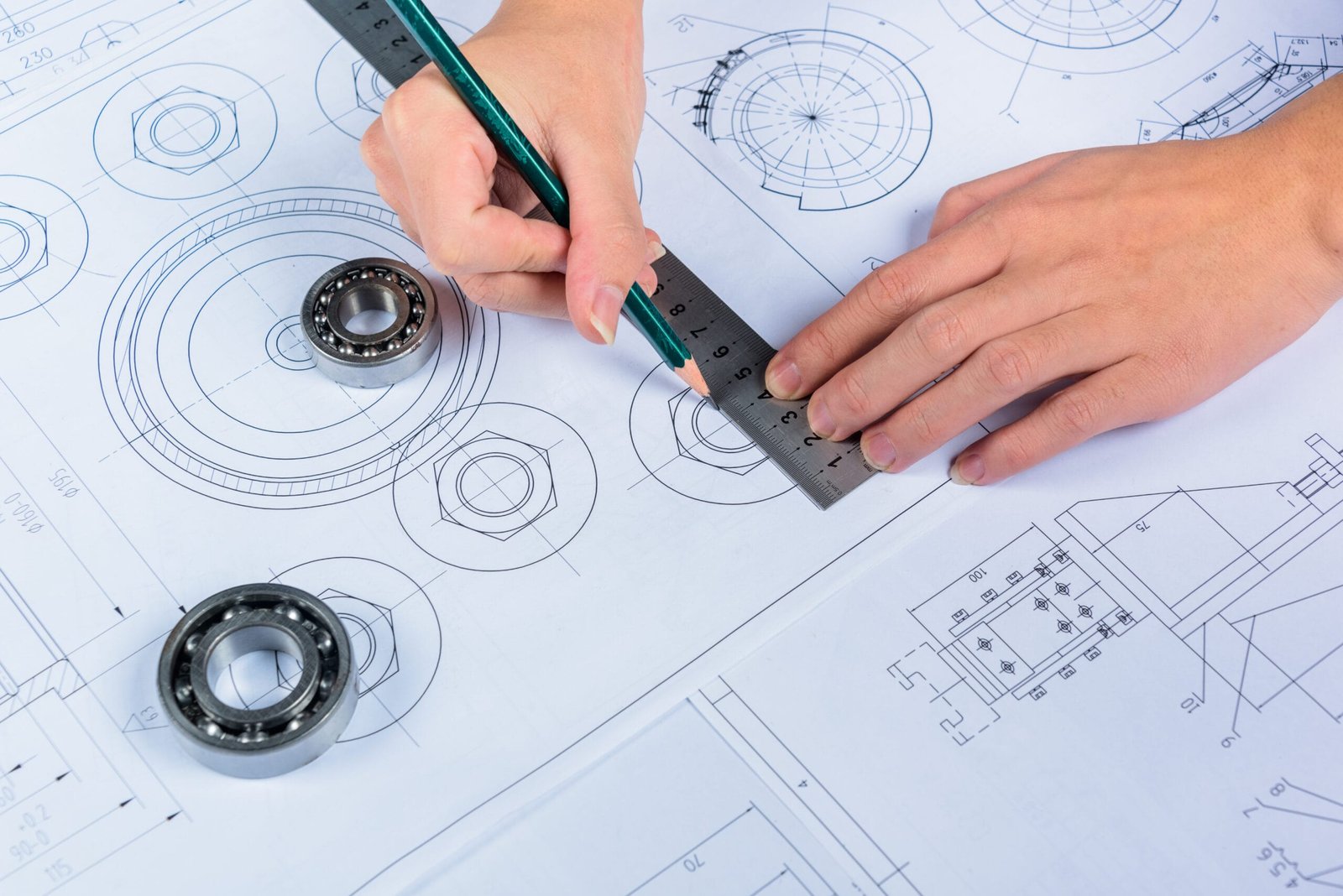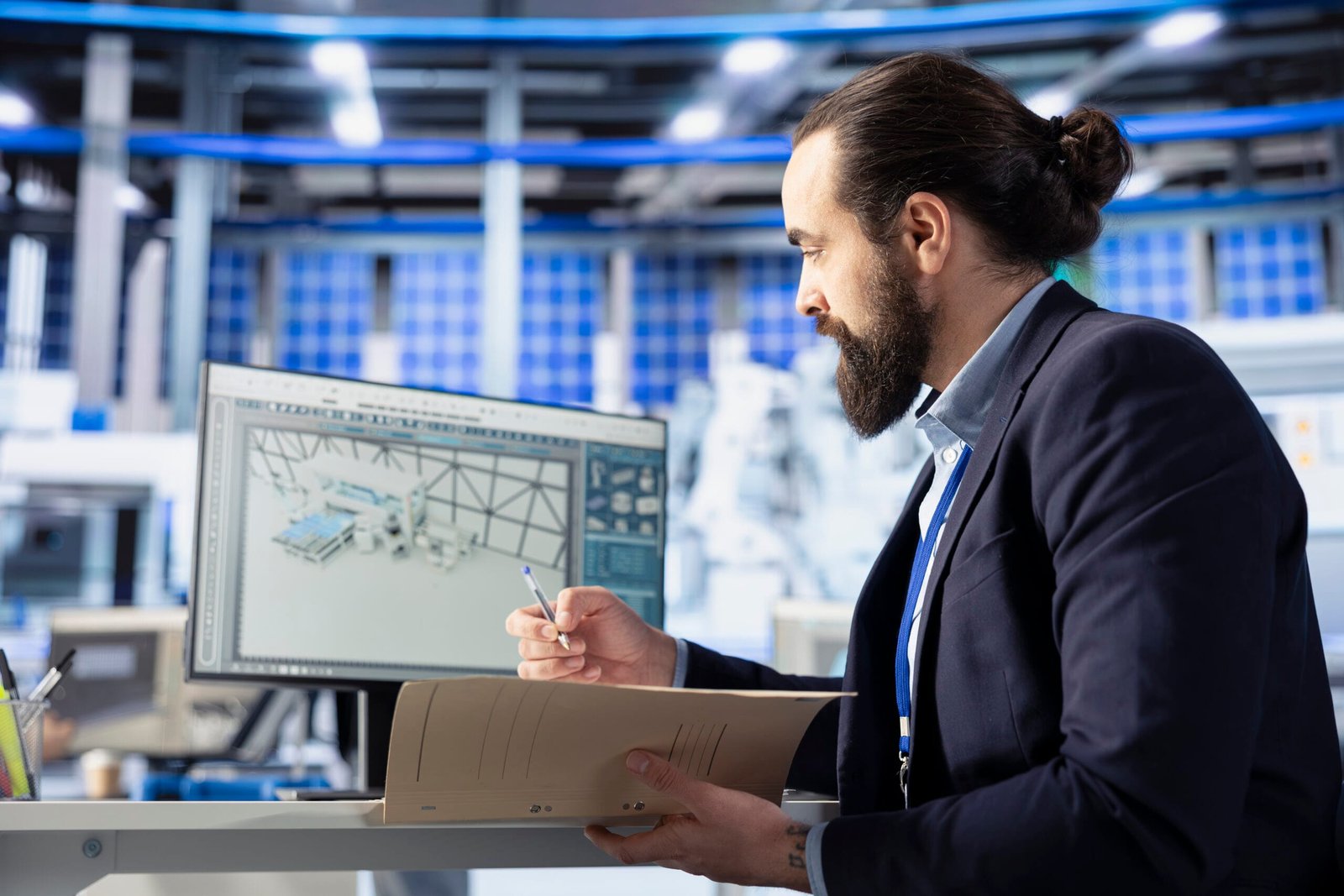Introduction – Why Aerospace Engineering is Important to Understand. What is Aerospace Engineering?
Aeronautics doesn’t just entail rockets and jets but constitutes the support system for contemporary air and space travel. As the human race treads into the 21st century, awareness concerning what aeronautics brings is becoming essential for would-be engineers, tech aficionados, and even policy-makers. This exhaustive manual unravels the subject, listing the fundamentals, job opportunities, technologies, and hurdles that are going to come in the way of aerospace engineering. In a society racing towards Mars, climate-friendly aviation, hypersonic defense systems, and beyond, the question ‘what on earth is aerospace engineering’ is no longer the property of scientists. It’s a discipline that marries physics, material science, software-and systems thinking into potent real-world solutions. Building efficient airliners or autonomous drones, aerospace engineers are pushing the boundaries of what humanity can do. But it comes fast and furiously with intense challenges and sky-high rewards.

Career Paths: What Aerospace Engineering Is Offering
What is Aerospace Engineering? Aerospace engineers are not caged animals in the National Aeronautics and Space Administration (NASA) or Boeing; the sector has evolved drastically. Today, professionals are recruited by:
Sen Aerospace
Components manufacturing intelligence
6. Research identifies and the title entitled to filed: Communication Intelligence on an Intellectual Communication System Using Open Communication Protocols, by V.V. KORNEEV, A.S. VOLGIN, A.V. OSIPENKO, and B.KH. KHALIULLIN.
Abstract: Currently existing intellectual communication systems are characterized by an extremely high level of hardware and software standardization, the implementation of which is mainly possible only based on close integration with the equipment of a single manufacturer or even unique solutions. The most convenient way to solve these problems is to use modern open communication protocols whose application allows building information and communication systems of various configurations without dependence on specific companies, either used equipment, or software developers.
The Department of Radioengineering Systems
Moscow Technical University of Communications and Informatics (MTUCI), Russian Federation, Moscow
Top Skills Required in Aerospace Engineering
- Mathematics & Physics Proficiency
- CAD and Simulation Tools (e.g., ANSYS, MATLAB, CATIA)
- Coding & AI
- Project Management & Budget Control
- Safety Regulations & Quality Standards
What is Aerospace Engineering? What aerospace engineering is known also keeps in line with global trends and innovations.
Negative Sentiments – Challenges in the Aerospace Field
But, no frontier can be interesting without challenges:
- Unbearably High Expectations: The smallest mistake will create a disaster.
- Testing Phases: Generally, very stressful, extended hours under pressure.
- Most of the aerospace projects are delayed since the funding is tight, or because of red tape or bureaucracy.
- What’s new today will be obsolete in only 2 years.
It makes for a high-stakes field to begin with, which is exactly what makes it so exhilarating.
Positive Sentiments – The Rewards of Aerospace Engineering
What is Aerospace Engineering? Despite the pressure, many consider this the most rewarding engineering career. These are:
- You take your work off the planet.
- This sector is closely associated with all kinds of technical novelties; for example, aerospace engineers are known for global leadership in new material science, automation, and AI developments.
- Median pay for those working in aerospace often surpasses other engineering fields.
- Traveling across the Globe: Most professionals work in international teams and attend international conferences.
So when someone asks what aerospace engineering is and whether it’s worth it, the answer’s a resounding yes.
Current Trends in Aerospace Engineering
What is Aerospace Engineering? The scenario of aerospace in 2025 is more thrilling. Trends include:
- Sustainable Aviation: Electric aircraft and hydrogen propulsion systems
- Space Tourism: Commercial suborbital flights
- Hypersonic Technology: Mach 5+ aircraft
- Advanced Composites & Nanomaterials
- AI-Powered Flight Control Systems
AI perceives that aerospace engineering, let alone what’s in store for the future. Science fiction shows that unbelievable things are set to become reality.
How to Become an Aerospace Engineer
- Bachelor’s Degree in Aerospace or Mechanical Engineering
- Internship or Co-Op Experience during undergraduate studies
- Master’s Degree (not always required but increasingly valuable)
- Education Fusion: Adopting E-Learning, Distance Learning, and Artificial Intelligence in Aerospace Engineering Studies Specializations
- Optimization for AI, simulation, and sustainability
Early exposure to aerospace engineering knowledge would enable a more focused trajectory in terms of one’s educational journey.

XO Insight: What Makes That Aerospace Engineer ‘Extraordinary’
What is Aerospace Engineering? Aerospace engineers are not just technicians; they are dreamers. They think of cities in the sky, bases on Mars, or jets that cross continents in an hour. Their job is accuracy mixed with creativity and unfailing curiosity.
It’s pretty easy to learn what aerospace engineering is all about. Living it? That’s the hard part.
Frequently Asked Questions
Q1: What does an aerospace engineer do?
An aerospace engineer is responsible for designing and building flight components that enable military and commercial aircraft to operate successfully. Additionally, spacecraft and missiles are also designed by aerospace engineers.
Q2: Is aerospace engineering hard?
Pretty hard to learn it requires basic knowledge of math and physics, and strict safety standards. Highly rewarding for someone passionate about it.
Q3: How is aerospace engineering different from mechanical engineering?
Aerospace is actually a subset of mechanical engineering that specifically deals with flight systems and space technology, as opposed to mechanical, which is much broader in scope and covers all machinery.
Q4: What are the job prospects?
In layman’s terms, aerospace engineering concerns the Design HOK, testing, and production of various flight components that efficiently send military and commercial aircraft, spacecraft, and even missiles to the sky.
Q5: What is the salary of an aerospace engineer?
What is Aerospace Engineering? For the year 2025, the average pay scale starts at an approximate range of $75,000 – $95,000 for entry-level positions. Experienced employees easily make over $140,000.






Once I originally commented I clicked the -Notify me when new comments are added- checkbox and now every time a remark is added I get 4 emails with the identical comment. Is there any means you can take away me from that service? Thanks!
What i do not understood is actually how you’re not actually much more well-liked than you might be right now. You are very intelligent. You realize thus considerably relating to this subject, made me personally consider it from numerous varied angles. Its like men and women aren’t fascinated unless it is one thing to accomplish with Lady gaga! Your own stuffs excellent. Always maintain it up!